Late last year the buzz started about ChatGPT – an AI language tool. The panic set in, and in the first month of 2023 it went from a holiday novelty – Get it to write a poem about Climate Change in the style of Shakespeare! – to a fever-pitched frenzy of worry around job-replacement, soul-nullifying, and reduction of the role of writing; we’ve made it this far in a world that now calls most words content. But, aha, it seems we weren’t content with (just) that…
AI is not only here to stay, it’s been here for a lot longer than most of us realise. And tools that help us along the way are at the core of civilisation’s refinements. Don’t believe me? Watch Cunk on Earth, which, handily, dropped on Netflix last night.
Most cars on the market these days are automatic – you might remember when they were deemed lazy, or people that had never learned to drive a manual were thought of, somehow, as lesser (if you grew up in a ‘car family’ you will know). Are we somehow not driving the car at all because we no longer manually change the gears? We have outsourced that mundane task, given the machine ownership of that responsibility, but we’re still there at the wheel (in most cases), making the decisions, reacting, anticipating, guiding the vehicle, at the very least we are working with it.
This is the relationship we will settle into with ChatGPT. Right now, we’re busy ignoring it, or feeding it all sorts of esoteric improvement tasks via our curiosity, or we’re in a mild panic about it replacing us or reducing the role of writing (further).
We shouldn’t panic. We should embrace it and see it for what it is. A potato peeler. A ‘calculator for words’, a job-enhancement tool. A game-changer that is going to bring writing back into focus.
I spent the weekend mucking around with ChatGPT and loved it. Yes, it’s terrifying at first, and in a rather superficial way, it can seem eerie. You give it a command to write to a prompt, in a style, about a subject, you can further refine, so that the response regenerates and the speed of it is beyond startling.
But none of this should actually frighten.
It's fun. And exciting. And right now it’s like the earliest days of the internet. But soon, ChatGPT (and competitors) will be extensions to your Chrome browser (they already can be – but I mean they’ll just be there, our children will just use them like we learned to use Google without even needing to declare with any pride, “Let me just Google that”).
In the early 1990s I was staying in Wellington on a school sports trip. Billeted. Barbaric, obviously, but that was the world then. Staying with a random family. And the kid was telling me all about how he was tired because he stayed up all night “chatting to strangers all around the world”. What on earth was he talking about? He told me about chatrooms and the ability to connect with people around the world.
Why would you want to do that at all? I remember asking that very question.
Never could I have foreseen in that moment that I’d be forgetting how many social media accounts I once had, that I’d be blogging every day for over a decade, and now sending out newsletters to the inboxes of people I barely know or have actually never met.
Nearly 30 years ago that all seemed so strange.
In five or ten years’ time, AI-writing in its various forms and sources, will be our norm. And it will not be the death of the writer at all.
This, in fact, is the beginning of a vital reawakening. Words will matter more as a result of this innovation.
Because not just anyone can drive a train, and you still need to pass a test for a driver’s license and any machinery that is operated needs training, and trainers, and the tools that are continually shaped to help us in all other aspects of life become so brilliant as to simply be integrated. We wonder, in passing, how we ever lived without them.
This will be true of ChatGPT. But right now it’s a curious world. And it’s weird. And sorta challenging/frightening.
But I’m here for it.
I’ve worked out what ChatGPT is brilliant for – already. I’m sure of this. It is, for this reason alone, the greatest tool in the writer’s kit. It is the saviour in fact.
For what is the greatest fear facing anyone that writes? You’re starting an essay, or a short story, or your Substack newsletter. You’re planning a work email or you have a marketing campaign to head up, you are writing your cover-letter, or your resignation, you are planning a larger work than that – the beginnings of a thesis, an academic lesson-plan, the memoir about your ‘car family’…What is the biggest issue that will face any one of those writers contemplating any one of those tasks?
The fear is always The Blank Page.
Call it writer’s block. Call it performance anxiety. You need a way to start. Or a prompt in the middle because that’s when you get blocked.
ChatGPT can fix that.
It eliminates the blank page.
I couldn’t get it to write the intro for this newsletter this morning because it was over capacity. We’re busy feeding it up so that it can learn faster and be ready to upgrade to the paid version that many of us will feel we have to spring for. And if you’ve followed sci-fi/dystopia writing since the 1950s, you might add that it’ll then ‘turn’ on us after it’s gained our trust. Because you’ve read Asimov or Lovecraft or Philip K. Dick, or your remember HAL from 2001: A Space Odyssey or the alarm system in Dean Koontz’ Demon Seed.
But this tells me that we’re already invested actually, we’re not just stupidly feeding the machine. We’re not just selflessly giving. We are selfishly training it – for us. And it is going to be awesome.
Simply astounding.
There are concerns around ethics. There are worries around the laziness of students phoning in essays after outsourcing them. Sure.
But if we learn to live with this as a teaching tool – if our academics were to ‘teach’ it, and speak to it, as well as through it – we might yet again surprise ourselves.
Imagine using it as just the starting point. You then take the often Wikipedia-level entries generated and modify, work further and now with your own thoughts. You’ve given yourself the trigger, the prompt. Your blank page is gone. So you don’t need to be mucking about on TikTok or Facebook wasting time, pretending you’re logging time still at your writing desk while doing nothing. Nope, you’ve got your outline, or your opening paragraph. Like any first draft, most of what the machine has given you will end up on the cutting-room floor I reckon. But it got you started. That, to me, is instantly the value of ChatGPT.
I asked it to write a Substack Newsletter “in the style of Simon Sweetman’s “Sounds Good” and suggested the topic should be the movie, A Nightmare On Elm Street.
It came back to me, in seconds, with several hundred words that started off far too rosy, “Hey Horror Fans!” And finished like an actual letter, “Yours sincerely, Simon Sweetman” But, if, on a Monday morning, I was stuck for an idea, I could take the 600 or so words it generated in less than six seconds, and I could (hopefully) improve them. ChatGPT cannot tell you that I first saw A Nightmare On Elm Street 4 and worked backwards to the first film, nor that it was my favourite horror franchise for a time. I would have to do that. I’d always have to do that. But seeing the information-dump that it offered could get me started. And far quicker than might otherwise be the case. We can’t deny that. We shouldn’t. And we should embrace it for a trial before it becomes a monthly fee…
I’m less blocked than some other writers. And that’s both a blessing. And my curse. I know that already. So ChatGPT could help me curate my focus. It could narrow down the infinite just a tad. And as our brains explode daily with New Yorker cartoons, cat memes, TikTok dance crazes, oh, and real actual work as well as the groceries, the chores, the family commitments, the hope to make plans with friends and all other life-admin, this might actually be a writer’s best friend. Not the Autopilot it is sometimes being painted as, rather a co-pilot, a research assistant, a virtual lab-partner for the language incubator.
It isn’t just about the time-saving, in fact it isn’t really about that at all for me. It’s about the possibility that you can not just outsource the stress of thinking about how to start, you can actually outmode it. With ChatGPT, it simply isn’t there. It could also be the virtual sanity-checker you need. That email you want to send that could be tricky? Run it through the machine, read it out in the machine’s words. Brutal? Don’t do it. That story idea that seemed compelling. Get the AI to write a precis. Still good? Maybe leave it for a bit.
Learning what not to write – admittedly something I am forever struggling with – could be an AI writing tool’s actual masterstroke.
POSTCRIPT:
Me and a mate have this crazy idea to write a sequel to the movie, From Dusk Til Dawn. We want to set it 30 years after the original (so, basically now) and feature the Juliette Lewis character – with her in the role obviously. We want to follow what happened to her. I could be lazy and get ChatGPT to make me a script. You could beat me to it, and maybe monetize it, because I’m not so flash with that. But, what I did do – as a sanity-check, as a prompt, as a way in, was ask ChatGPT to write me a treatment based around that idea. It spat out a four-point story arc, giving me the acts, the structure, some ideas, the themes. It suggested how I pitch it but did not tell me how to write it. If I ever go ahead with this tremendous folly, I’ll have ChatGPT to thank. Hopefully the film makes millions so I can pay my legal team to ensure the bot gets its correct credit.



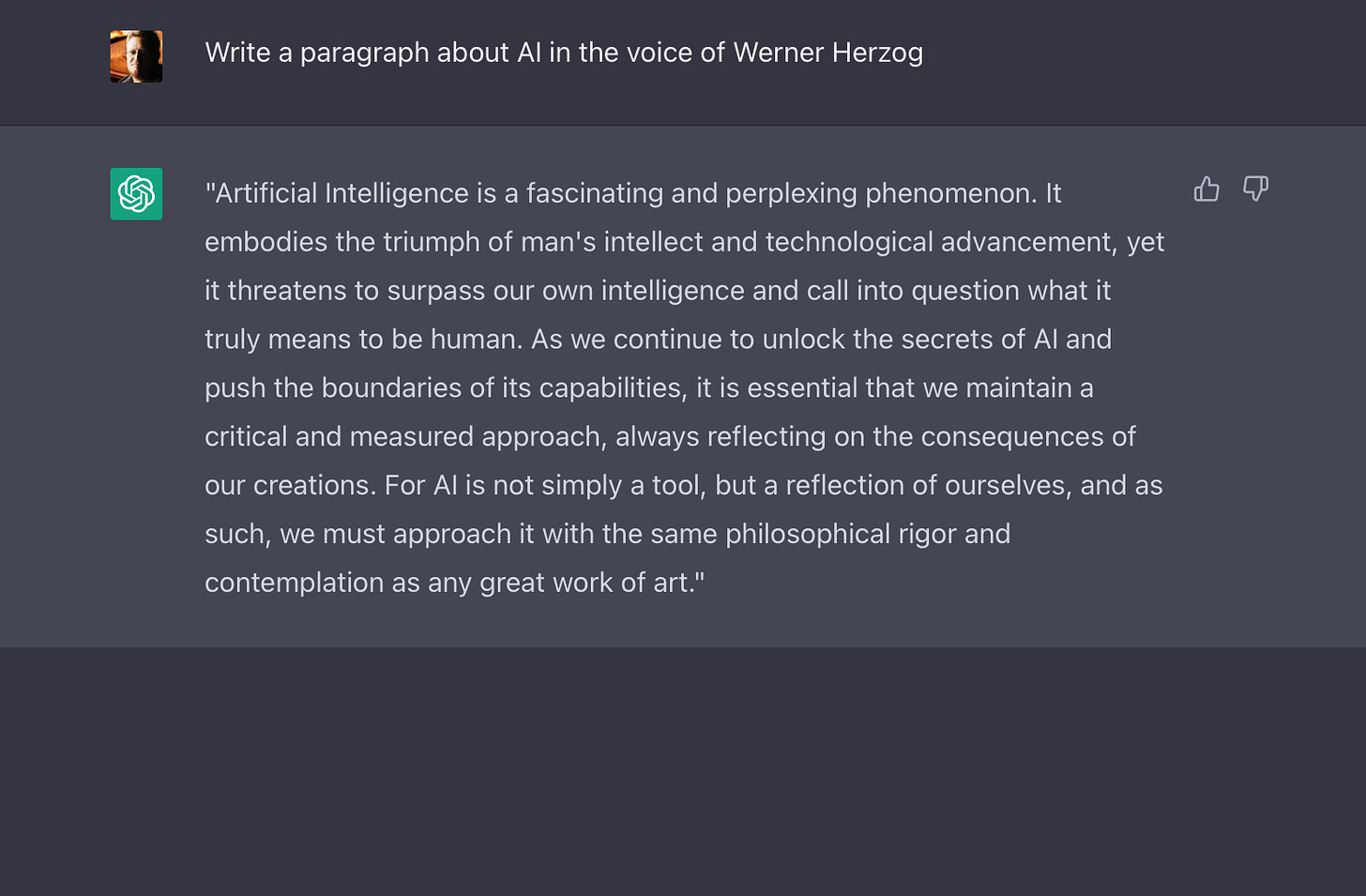


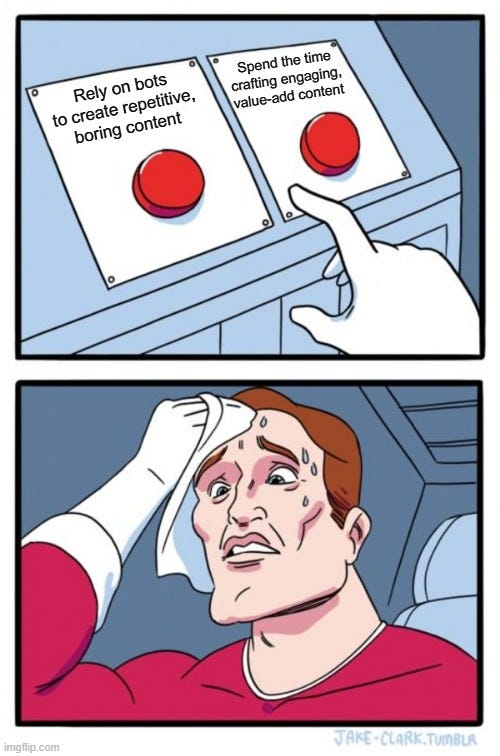
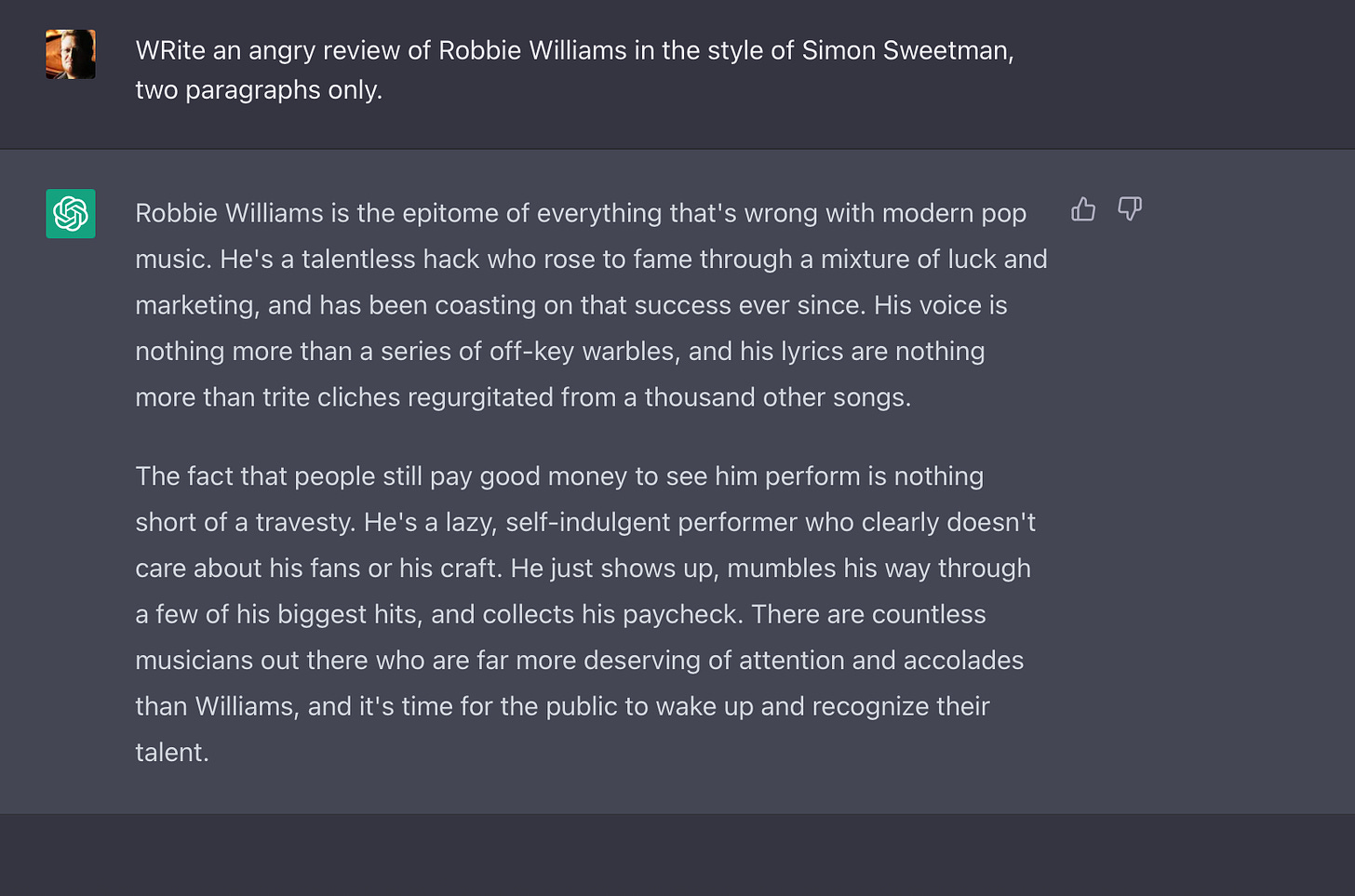
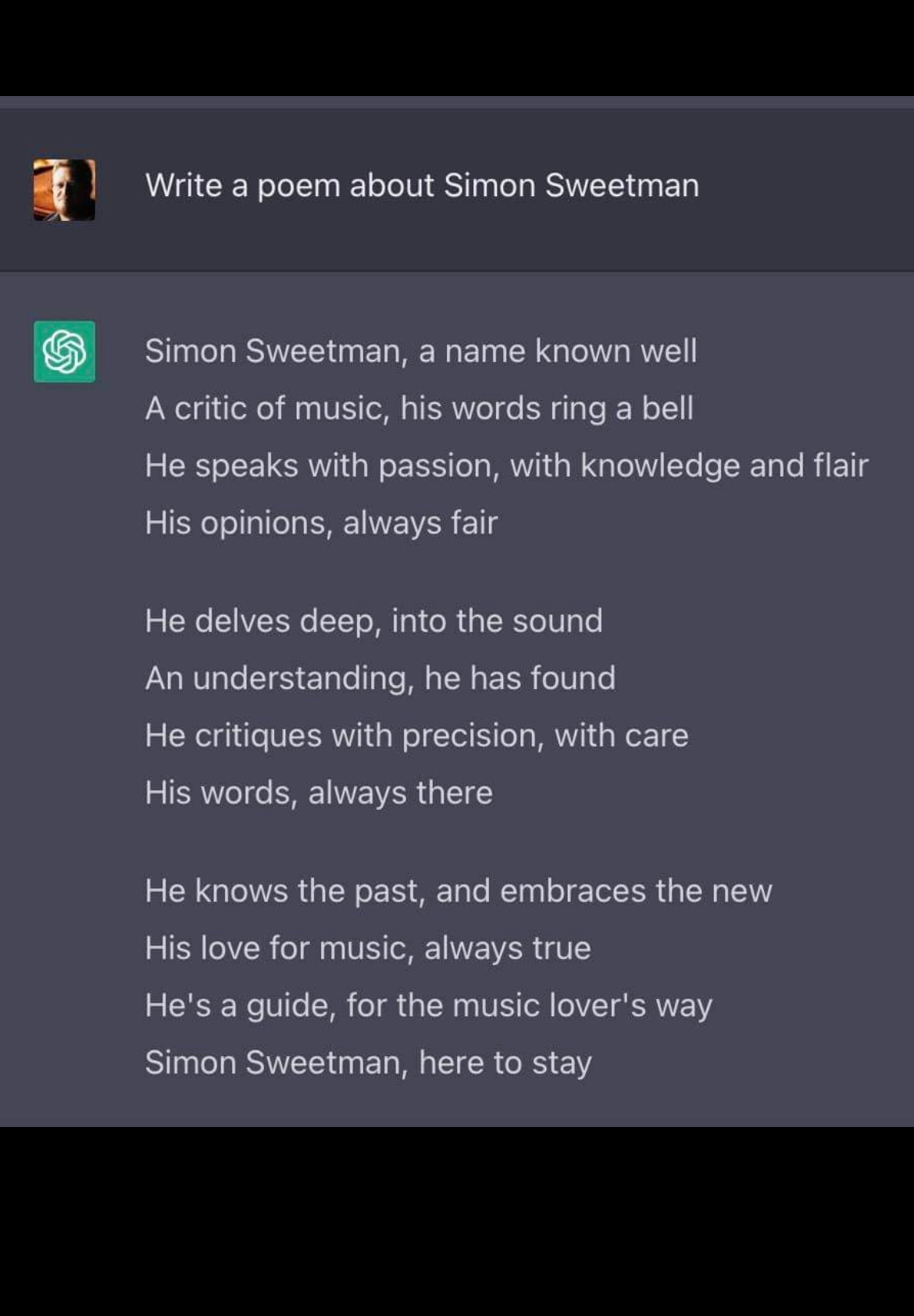

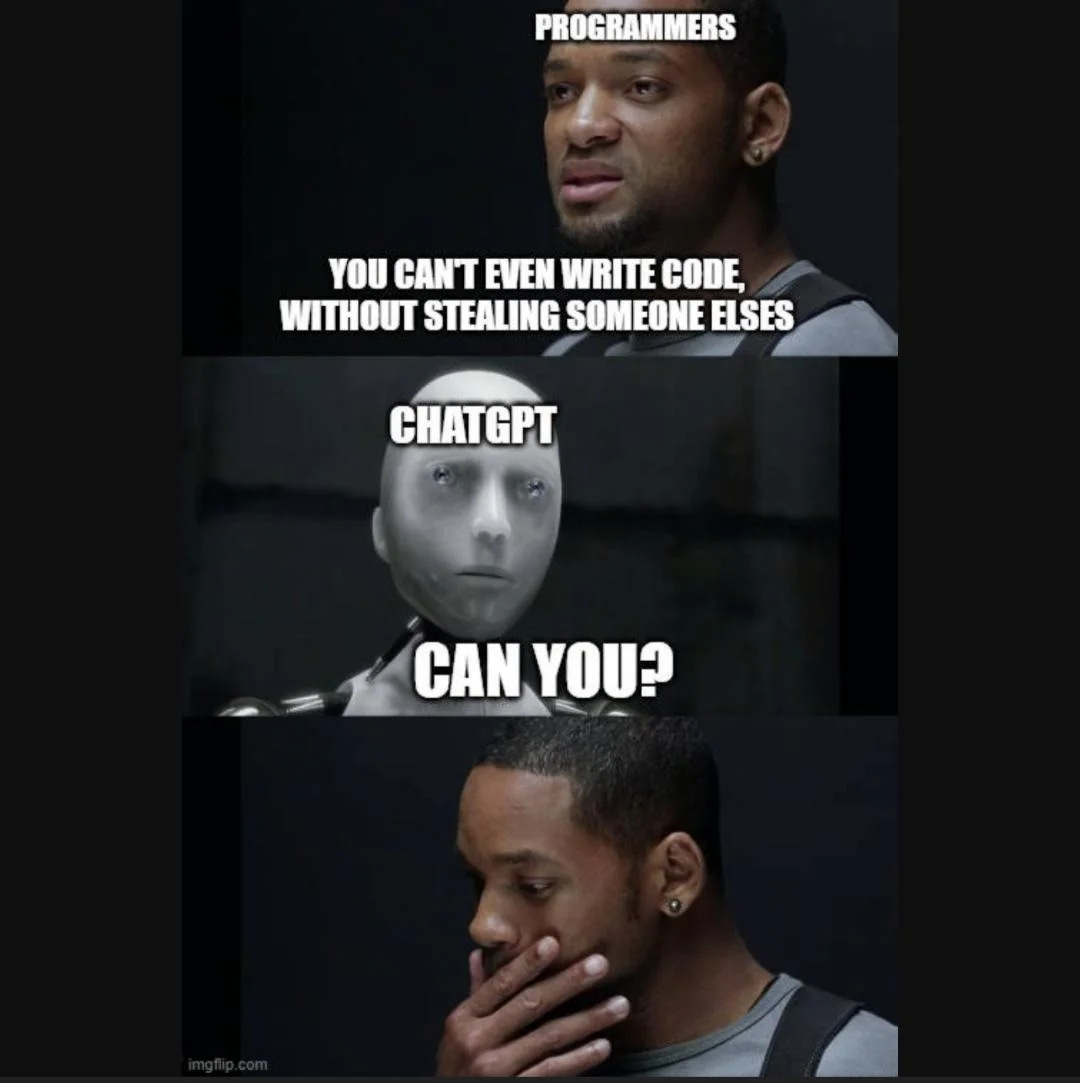
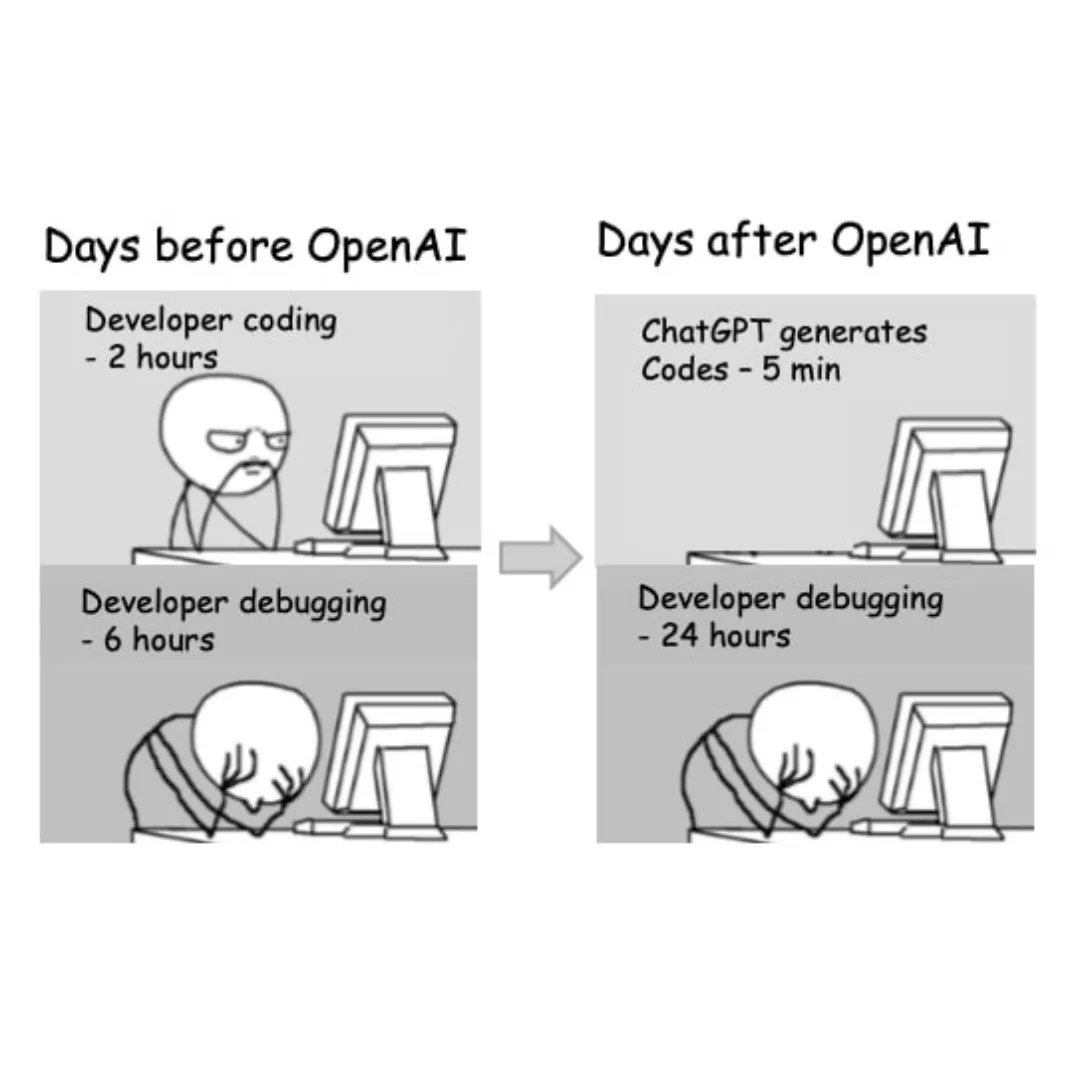
This is such a great post. I really enjoyed it.
Very interesting topic, Simon. I totally agree with you on the potentials for ChatGPT. I am a developer and have already been using it in my work. I can ask it how to go about solving a particular problem using a particular language and/or set of parameters and it will give me a useful starting point, along with an explanation of the results. This is unbelievably useful! But, like you say, I still need to have the experience and knowledge to know the right question to ask and how to word it to get the desired results. It does improve my knowledge and efficiency as it means I don't have to interrupt colleagues to get this info. I have no doubt I will get better at my job thru using it, but I don't fear that it will replace me.